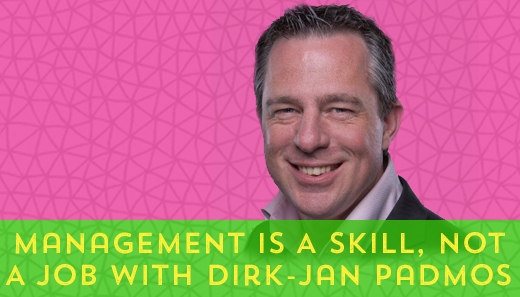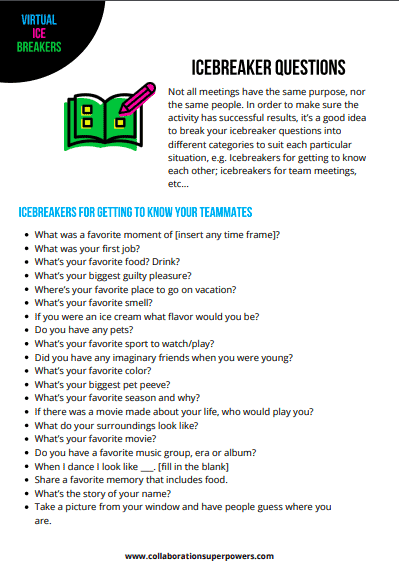
DIRK-JAN PADMOS is a hands-on HR interim manager/HR consultant with special expertise within the technical wholesale, ICT, and health care branches. He advises owner-managed businesses on how to structure and implement HR policies. Dirk-Jan says, “Management is not just a job, it’s a real skill. And it’s a skill that can be taught up to a point, but if you don’t have the basic talent for it, you will never be a fantastic manager.” (https://www.linkedin.com/in/dirkjanpadmos)
His tips for working remotely:
- Consider flexible working a benefit that your company can offer its employees.
- Don’t go remote if you have bad communication in person. Remote working can amplify bad communication.
- Focus on hiring the right people.
- Be deliberate about your company culture.
- Give back to your community.
Here are the highlights:
- Remote working is a benefit that companies can offer their employees
- Remote working can amplify bad communication
- Hire the right people
- Focus on your company culture
- Focus on your community
Benefits of remote working
I am a proponent of remote working and see it with more and more companies. Most of the time, it’s a partial work at home situation. One client doesn’t work on Fridays. Another works Sundays instead of Thursdays. One employee lives in Groningen and comes to the client office in Amsterdam once a week. One company has an office with only enough room for half the staff at any given time. I work 36 hours a week (four 9-hour days) so I have Fridays off to spend with my sons. I like the fact that I am able to be with my sons, and also check into work while they’re napping to make sure that there are no emergencies.
Clearly, the money saved on office space can be significant, especially in the bigger cities. But in addition to that, remote working is becoming a benefit that companies offer their employees. The flexibility for family life can be very important for an employee.
For example, last December I had a couple of awful nights sleep. Sinterklaas was coming and the kids were awake at 5am. I tried to work in the afternoon but was just staring at my screen and couldn’t focus. So I ended up taking a nap, and in the evening, after everyone was went to bed, I logged in and finished a report. The flexibility gave me peace of mind.
Challenges of remote working
Technically, everything is possible these days. There are, of course, the basic challenges of of managing remote workers including making sure that people are getting their work done, and keeping employees motivated and in tune with the company. It’s simply harder to build loyalty with remote working. But in my opinion, the biggest problem is management.
A lot of people confuse remote working with “Het Nieuwe Werken”. Remote Working is only a part of “Het Nieuwe Werken”. I also think that the way people are managed is a part of it. If you work with a group of people who don’t communicate well, working together in an office forces a certain tie between people. People are forced to interact with each other, and that keeps things relatively organized. If you add remote working to managers who already don’t communicate well, it will amplify the communication problems.
It’s common for the people who are skilled at their work to, over time, be promoted and eventually end up in management positions. And for some reason, people feel that management positions are superior. I don’t understand why being a technically skilled employee is seen as less than being a manager? So where this whole thing goes wrong is with the assumption that people who are skilled at what they do will make good managers. They are fantastic accountants or lawyers or have very elaborate knowledge of their trade… but management is also a trade. Management is not just a job, it’s a real skill. And it’s a skill that can be taught up to a point, but if you don’t have the basic talent for it, you will never be a fantastic manager.
Think about it this way. You have to be quite proficient at your job. You have to be very proficient at working with a team. And then, you also need to be very proficient at managing all these people. You ‘d really need to be superhero to be excellent at all three. It’s a rare person that can do this. Bill Gates is a very commercial man. He’s good at business and has great technical skills. But I don’t think he’s a very good people manager. Same goes for Steve Jobs. He had the foresight to surround himself with people who were experts in their own line of business. But everyone said that he was terrible to work for.
Managers have to be able to be empathetic to people and still deliver the bad news when needed. They need to be a friend amongst employees but still be a manager at the same time. This is called the softer side of management or intra personal relations. And if you ask me, the softer side is the harder side. My manager takes the time to call me and check in regularly. We occasionally go out to dinner. A few years ago I was having a hard time in my personal life, and my manager took the time to understand my situation. We were able to work together to improve things. And that was showing real loyalty towards me. He was standing up for me and I really respect that. I care about the money so far as I need it to pay bills, but I care more about working with someone like my manager.
Hire the right people
Hiring the wrong person is the worst thing a business can do. One of my clients was looking to hire more people. I looked at the resumes that came in and I could see that the candidates weren’t qualified. And the company also knew that the candidates weren’t good enough. But instead of continuing their search, they said “We need bodies! We can train them”. But when people aren’t qualified, you simply can’t train them to do what they need to do. I’ve seen this for years. And because of the “war on talent”, companies continue to hire mediocre people.
The solution is simply to hire the right people. And if you are looking for managers, hire people who are good managers.
Focus on your company culture
Most company cultures overrate themselves. They tend to see themselves the way they want to be seen, not as they really are or as they are seen by others. I once had a company who asked me why they weren’t getting any applications from top talent. I did some research, and found that the perception of the company was low with the people in the industry and the top talent didn’t want to work there. Companies need to pay attention to their culture and reputation. It’s easy for people to find information about a company with all the online resources. I always advice my clients to do their research when looking into potential employees. “Did you google the applicant?”, “Did you look on LinkedIn and Facebook?” The same with friends and acquaintances. I ask them “Did you google the company?”, “Did you look up the financial figures for the last few years?”. It’s worth doing the research for both the employer and the employee.
Focus on your community
When I started working for Mazars, I got involved with a local organization called ICT-Kring. It was a great way to network with others who cared about the same things as I did, as well as help people. I wanted to be attached to the ICT world because that’s my background and I wanted to do something that would give back to my community (Delft). – Dirk-Jan Padmos
Original transcript
An interview with Dirk-Jan Padmos
12 November 2012
Dirk-Jan Padmos is an HR Consultant at Mazars, a company specializing in audit, accountancy, tax, legal and advisory services for organizations. He specializes in in advising owner managed businesses on managing and structuring HR policies. A friend of mine suggested that I speak with Dirk-Jan about remote working, as he has a unique insight into a number of different businesses. Lucky for me, he said yes and we met for coffee at a great cafe in Delft.
Here are the highlights:
* Remote working is becoming a benefit that companies can offer their employees
* Remote working can amplify bad communication
* Management is not just a job, it’s a real skill
* Hire the right people
* Focus on your company culture
* Focus on your community
I am a proponent of remote working and see it with more and more companies. Most of the time, it’s a partial work at home situation. One client doesn’t work on Fridays. Another works Sundays instead of Thursdays. One employee lives in Groningen and comes to the client office in Amsterdam once a week. One company has an office with only enough room for half the staff at any given time. I work 36 hours a week (four 9-hour days) so I have Fridays off to spend with my sons. I like the fact that I am able to be with my sons, and also check into work while they’re napping to make sure that there are no emergencies.
Benefits of remote working
Clearly, the money saved on office space can be significant, especially in the bigger cities. But in addition to that, remote working is becoming a benefit that companies offer their employees. The flexibility for family life can be very important for an employee.
For example, last week I had a couple of awful nights sleep. Sinterklaas was coming and the kids were awake at 5am. I tried to work in the afternoon but was just staring at my screen and couldn’t focus. So I ended up taking a nap, and in the evening, after everyone was went to bed, I logged in and finished a report. The flexibility gave me peace of mind.
Challenges of remote working
Technically, everything is possible these days. There are, of course, the basic challenges of of managing remote workers including making sure that people are getting their work done, and keeping employees motivated and in tune with the company. It’s simply harder to build loyalty with remote working. But in my opinion, the biggest problem is management.
A lot of people confuse remote working with “Het Nieuwe Werk”. Remote Working is only a part of Het Nieuwe Werk. I also think that the way people are managed is a part of it. If you work with a group of people who don’t communicate well, working together in an office forces a certain tie between people. People are forced to interact with each other, and that keeps things relatively organized. If you add remote working to managers who already don’t communicate well, it will amplify the communication problems.
It’s common for the people who are skilled at their work to, over time, be promoted and eventually end up in management positions. And for some reason, people feel that management positions are superior. I don’t understand why being a technically skilled employee is seen as less than being a manager? So where this whole thing goes wrong is with the assumption that people who are skilled at what they do will make good managers. They are fantastic accountants or lawyers or have very elaborate knowledge of their trade… but management is also a trade. Management is not just a job, it’s a real skill. And it’s a skill that can be taught up to a point, but if you don’t have the basic talent for it, you will never be a fantastic manager.
Think about it this way. You have to be quite proficient at your job. You have to be very proficient at working with a team. And then, you also need to be very proficient at managing all these people. You’d really need to be superman to be excellent at all three. It’s a rare person that can do this. Bill Gates is a very commercial man. He’s good at business and has great technical skills. But I don’t think he’s a very good people manager. Same with Steve Jobs. He had the foresight to surround himself with people who were experts in their own line of business. But everyone said that he was terrible to work for.
Managers have to be able to be empathetic to people and still be able to deliver the bad news when needed. They need to be a friend amongst employees but still be a manager at the same time. And if you ask me, the softer side is the harder side. My manager takes the time to call me and check in regularly. We occasionally go out to dinner. A few years ago I was having a hard time in my personal life, and my manager took the time to understand my situation. We were able to work together to improve things. And that was showing real loyalty towards me. He was standing up for me and I really respect that. I care about the money so far as I need it to pay bills, but I care more about working with someone like my manager.
Hire the right people
Hiring the wrong person is the worst thing a business can do. One of my clients was looking to hire more people. I looked at the resumes that came in and I could see that the candidates weren’t qualified. And the company also knew that the candidates weren’t good enough. But instead of continuing their search, they said “We need bodies! We can train them”. But when people aren’t qualified, you simply can’t train them to do what they need to do. I’ve seen this for years. And because of the “war on talent”, companies continue to hire mediocre people.
The solution is simply to hire the right people. If you are looking for managers, hire people who are good managers.
Focus on your company culture
Most company cultures overrate themselves. They tend to see themselves the way they want to be seen, not as they really are. I once had a company who asked me why they weren’t getting any applications from top talent. I did some research, and found that the perception of the company was low with the people in the industry and the top talent didn’t want to work there. Companies need to pay attention to their culture and reputation. It’s easy for people to find information about a company with all the online resources. I always advice my clients to do their research when looking into potential employers. Did you google the company? Did you look up the financial figures for the last few years? It’s worth doing the research for both the employer and the employee.
Focus on your community
When I started working for Mazars, I got involved with a local organization called ICT-Kring. It was a great way to network with others who cared about the same things as I did, as well as help people. I wanted to be attached to the ICT world because that’s my background and I wanted to do something that would give back to my community (Delft).


